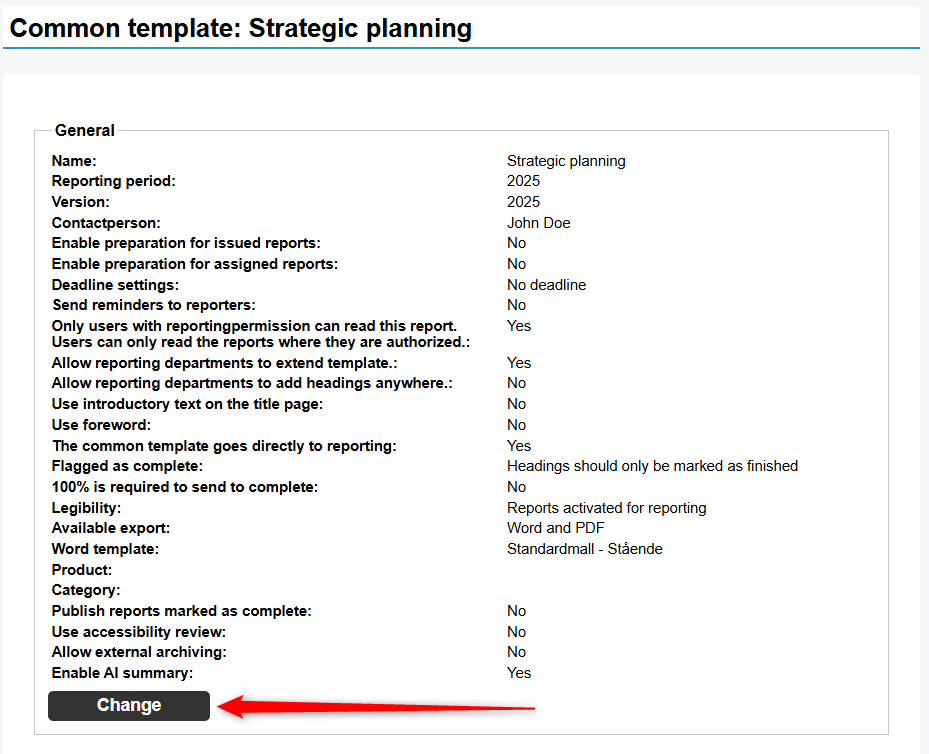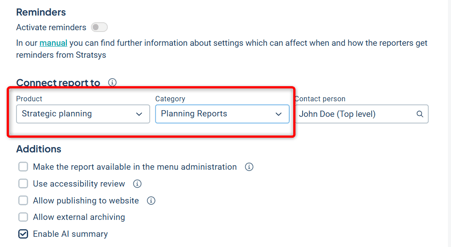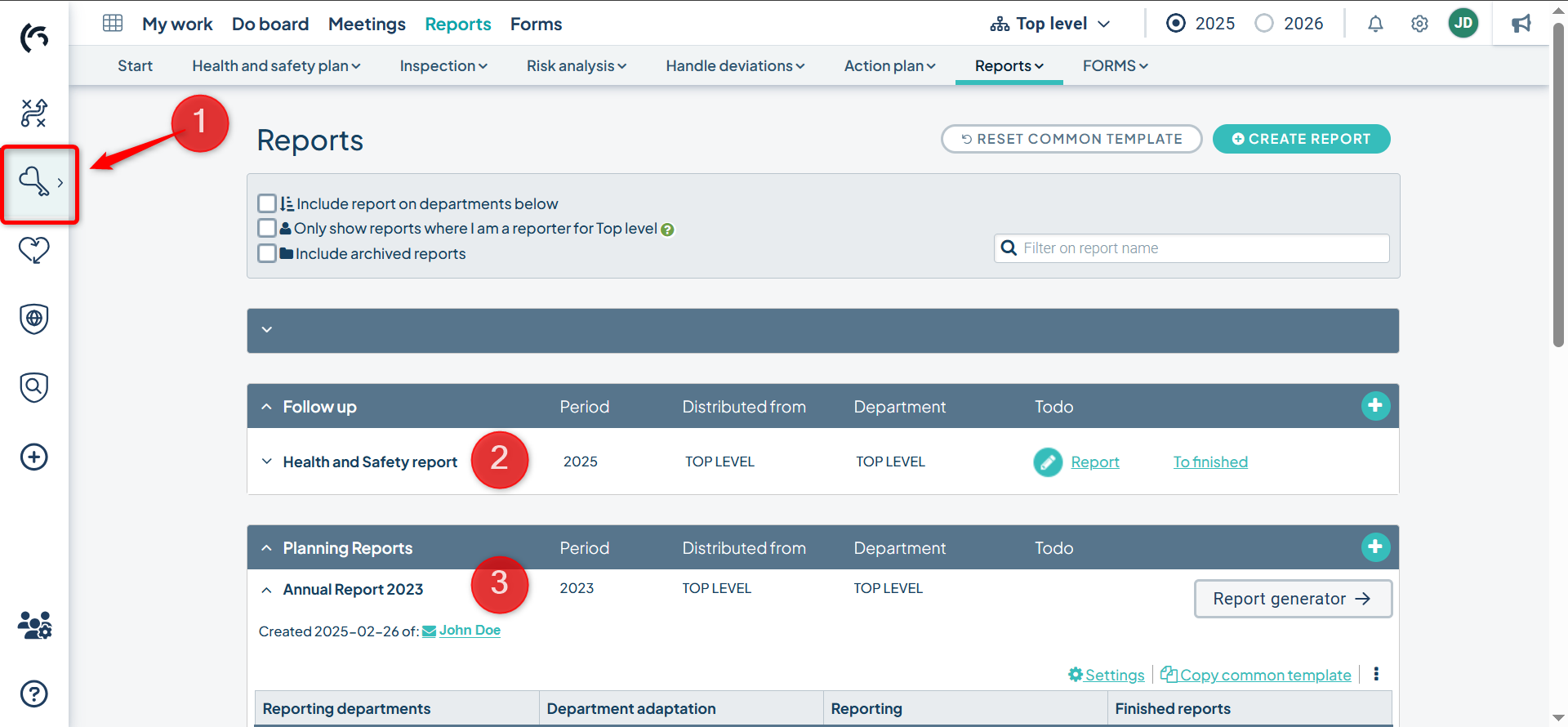It is possible to specify which product a report belongs to in Stratsys.
General
By default, all reports are gathered on a shared reports page. If there are many reports, it can become difficult for users to find the right one. In such cases, you can tag reports with the products available in your database.
Prerequisites
Note! To activate product-specific reports, contact Stratsys.
Use and Functionality
When reports are tagged with products, it becomes easier for users to find the correct report. Users will see all reports they have permission to access for the selected product.
If a user has access to multiple products, reports will be displayed under each respective product.
Reports that are not tagged with a product (including existing untagged reports) will still be available to all users on the reports page.
Access to Reports
When you select a product in the menu structure on the left and then go to the reports page, the reports tagged with that product will be displayed, along with any reports that are not tagged with a product—these will appear under all products.
Example in the image below:
-
Selected product is Health and Safety
-
The report "Health and Safety report", tagged with the Health and Safety product, is shown
-
The report "Annual Report 2023", which lacks a product tag, is also shown
Example in the image below:
-
Selected product is Strategic Planning.
-
The report "Health and Safety report" is no longer shown. Instead, "Follow up", which is tagged with the product Strategic Planning, is displayed.
-
The report "Annual Report 2023" is not tagged with any product and is therefore also shown here.
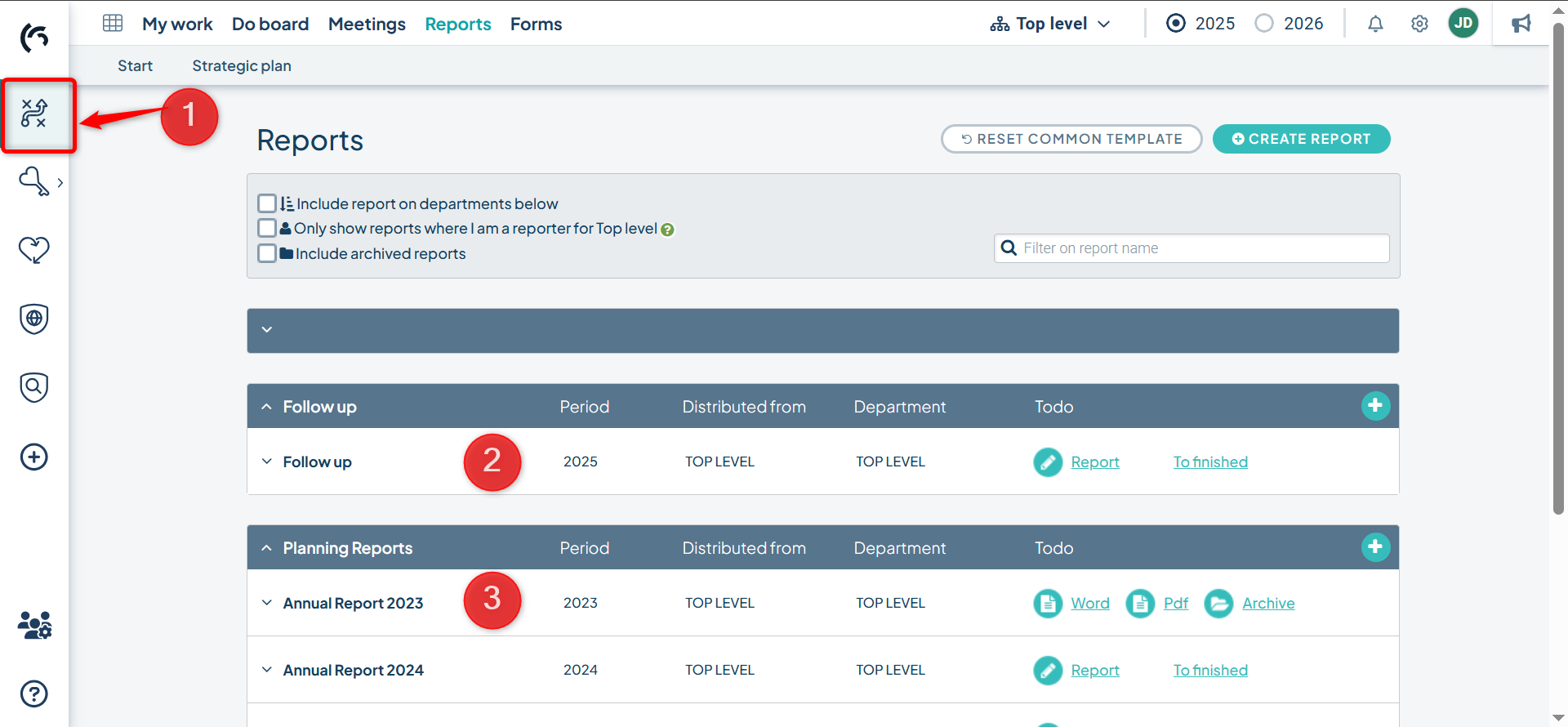
Product Tagging
Create a New Report with Product Tagging
Create a report as usual. Once product-specific reports have been activated, a new option will appear in the report settings: "Connect report to", where you can select which product the report should belong to. Only users with permission for that product will be able to see the report. In the example below, the report will appear under the product Strategic planning.
As a result, the report will be visible on the report page for users with access to Strategic planning, but it will be filtered out for those without that permission.
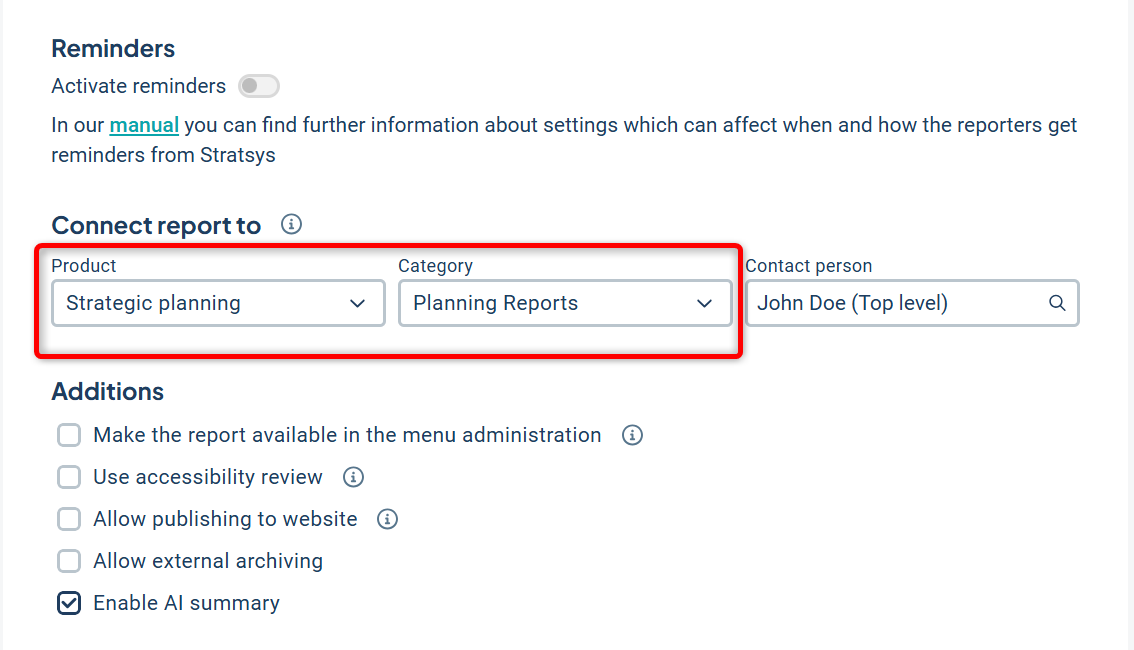
Product Tagging for an Existing Report
Observe: When a report is tagged or re-tagged with a product, all reports in the copy chain will also receive the new tag.
If the report you are tagging is a copy of an existing report, the original report will also be tagged.
If you already have a report that should be tagged with a product, you can apply the setting to the existing report. Navigate to the reports page—it doesn’t matter which product you’re viewing, since untagged reports will appear everywhere. Go to the report’s settings and click "Change". After scrolling to the bottom of the page, you will find the field "Connect report to." The report will now be visible to users with permission for the selected product.

